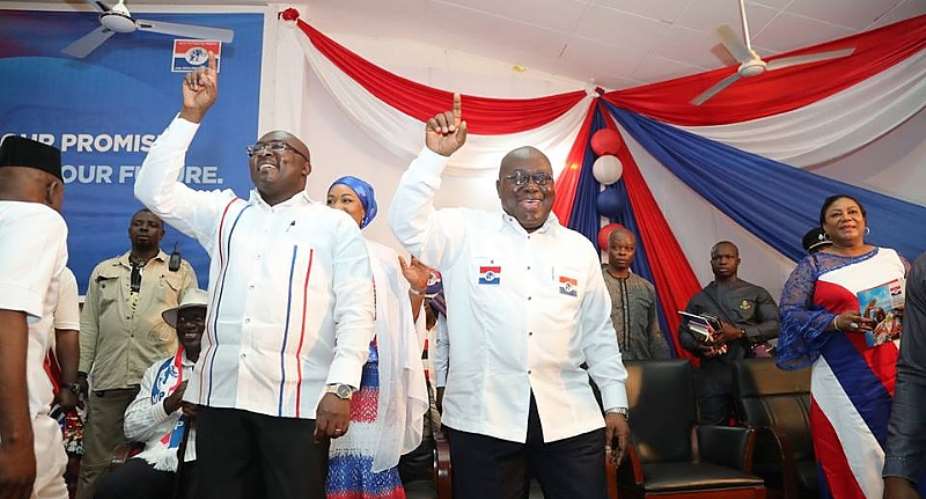It is vital that as a people we all contribute to the ongoing conversation about making the free senior high school initiative sustainable. We must also keep an open mind about the issue - and shame the negative politicians who seek to turn it into a political football for propaganda purposes.
An aspirational nation keen to successfully transform itself into a prosperous and inclusive society, cannot afford not to have free education from kindergaten to tertiary level, for those with the aptitude to study, but who come from poor backgrounds. With the pace at which technology is advancing, Ghana needs to keep refreshing its amazing talent pool, to digitise its national economy successfully.
The question is: Will creative thinking help us resolve the sustainability challenges in the provision of free senior high school education in Ghana? For example, should the power to create money be taken away from retail banks - and made the sole preserve of the Bank of Ghana: which will then create digital accounts for all Ghanaians, into which will be deposited digital money for the payment of school fees from kindergaten to tertiary-level, NHIS hospital fees, and for affordable housing for all who need it?
What disaster could possibly befall Mother Ghana by such a move to digital helicopter-money in the digital era? There are also those who posit that since the very future of Ghanaian democracy is at stake, we ought to have the nous and gumption to persuade oil companies operating in our waters that oil agreements signed by successive regimes since oil was discovered in commercial quantities, were unfairly obtained, and ought, therefore, to be renegotiated. Production-sharing agreements would give Ghana ownership of all its oil deposits - and give her $140 billion over the lifetime of those oil deposits: instead of the paltry $20 billion due it because the oil companies own that depleting resource under current agreements.
A travesty if ever there was one. It is for that reason that such independent-minded individuals insist that the plain truth is that every honest and patriotic Ghanaian, who knows anything about the oil industry, and genuinely cares about the welfare of ordinary people (and also seeks the long-term well-being of our nation at all material times), will agree that for common-good-reasons, only production-sharing agreements are in the overall national interest. It offends some of them that even troubled Chad's leaders were wise and honest enough to opt for production-sharing oil agreements.
The question is: Will such a development in Ghana ensure the sustainability of the government's free senior high school initiative? Faced with the dire societal consequences of the initiative's failure, we must think the unthinkable. Has the time not now come for our leaders to talk to the enlightened leaderships - such as BlackRock's Larry Finks - of the world's biggest institutional investors that are major shareholders in the foreign entities operating in Ghana's oil industry, about swapping the current patently unfair so-called hybrid oil agreements with production-sharing ones? Food for thought.





 SSNIT must be managed without gov’t interference – Austin Gamey
SSNIT must be managed without gov’t interference – Austin Gamey
 Ejisu by-election could go either way between NPP and independent candidate — Gl...
Ejisu by-election could go either way between NPP and independent candidate — Gl...
 We never asked ministers, DCEs to bring NPP apparatchiks for returning officer r...
We never asked ministers, DCEs to bring NPP apparatchiks for returning officer r...
 No one denigrated the commission when you appointed NDC sympathizers during your...
No one denigrated the commission when you appointed NDC sympathizers during your...
 Used cloth dealers protests over delayed Kumasi Central Market project
Used cloth dealers protests over delayed Kumasi Central Market project
 A/R: Kwadaso onion market traders refuse to relocate to new site
A/R: Kwadaso onion market traders refuse to relocate to new site
 Dumsor: Corn mill operators at Kaneshie market face financial crisis
Dumsor: Corn mill operators at Kaneshie market face financial crisis
 Jamestown fishermen seek support over destruction of canoes by Tuesday's heavy d...
Jamestown fishermen seek support over destruction of canoes by Tuesday's heavy d...
 Election 2024: EC to commence voter registration exercise on May 7
Election 2024: EC to commence voter registration exercise on May 7
 Public schools rebranding: We’re switching to blue and white, we’re painting all...
Public schools rebranding: We’re switching to blue and white, we’re painting all...
